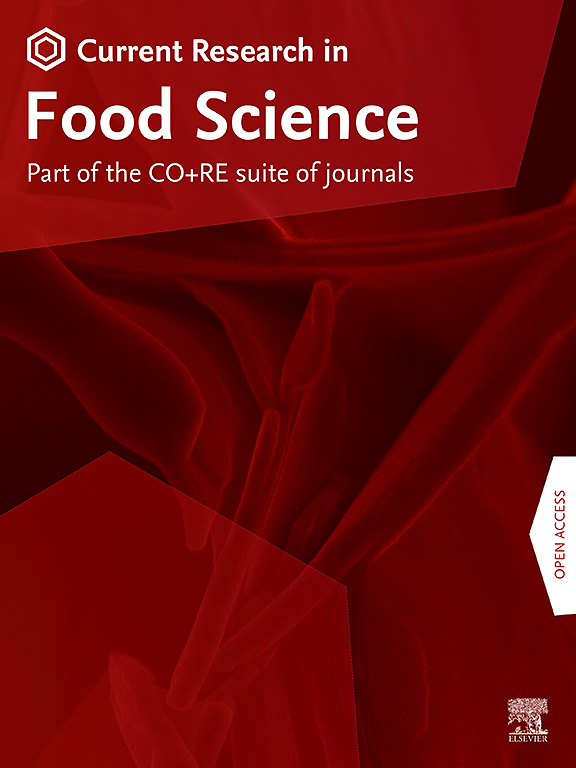Valorization of spent coffee grounds and their applications in food science
IF 6.2
2区 农林科学
Q1 FOOD SCIENCE & TECHNOLOGY
引用次数: 0
Abstract
Spent coffee grounds are generated in large quantities as a byproduct of coffee consumption. While often discarded as waste, spent coffee grounds still contain valuable bioactive compounds, including caffeine, chlorogenic acids, and polyphenols, along with dietary fiber, proteins, and essential minerals. Because of these nutritional properties, current research using spent coffee grounds includes fermented beverages, baked goods such as muffins and cookies, and ice cream cones. This graphical review explores the chemical composition and potential health benefits associated with spent coffee grounds. Additionally, the integration of spent coffee grounds in food products including fermented beverages and baked goods, food packaging, as well as food safety concerns, is explored. Utilizing spent coffee grounds as a functional ingredient in food not only contributes to sustainability by reducing waste but also enhances the nutritional profile of spent coffee grounds integrated products. Future research should not only focus on the effective utilization of spent coffee grounds but also address potential safety concerns, such as acrylamide formation and heavy metal contamination, to ensure food safety and consumer acceptability.
求助全文
约1分钟内获得全文
求助全文
来源期刊

Current Research in Food Science
Agricultural and Biological Sciences-Food Science
CiteScore
7.40
自引率
3.20%
发文量
232
审稿时长
84 days
期刊介绍:
Current Research in Food Science is an international peer-reviewed journal dedicated to advancing the breadth of knowledge in the field of food science. It serves as a platform for publishing original research articles and short communications that encompass a wide array of topics, including food chemistry, physics, microbiology, nutrition, nutraceuticals, process and package engineering, materials science, food sustainability, and food security. By covering these diverse areas, the journal aims to provide a comprehensive source of the latest scientific findings and technological advancements that are shaping the future of the food industry. The journal's scope is designed to address the multidisciplinary nature of food science, reflecting its commitment to promoting innovation and ensuring the safety and quality of the food supply.
 求助内容:
求助内容: 应助结果提醒方式:
应助结果提醒方式:


